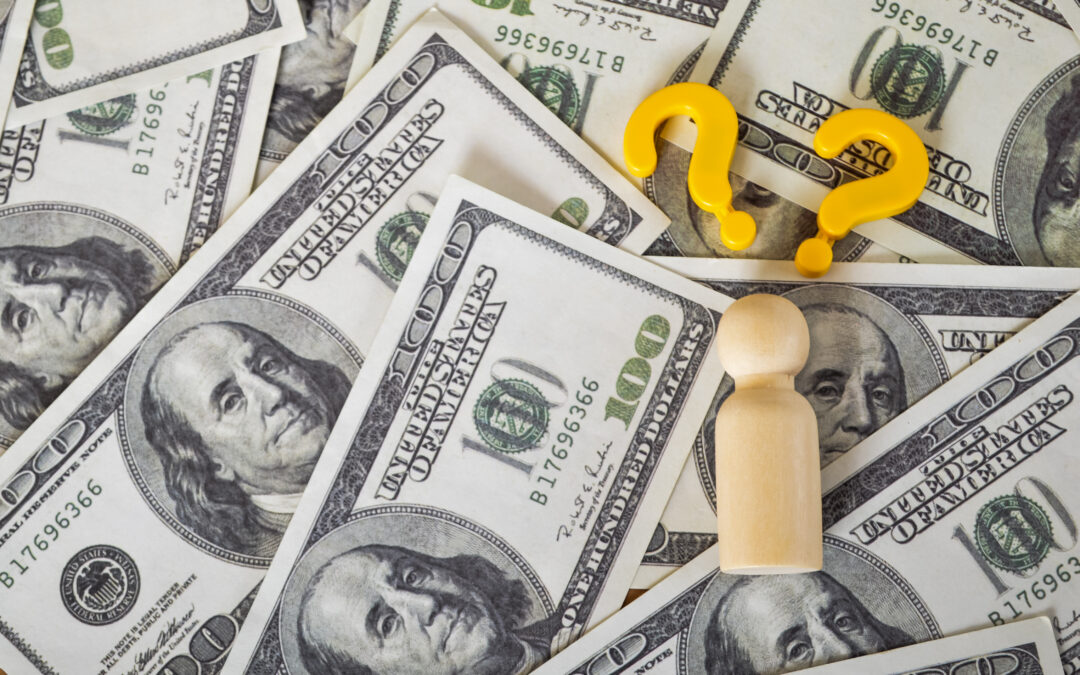What is Wealth?
Wealth. We all want it, but few know how to get it (or how to define it!) A definition of wealth is important because if we don’t define it, we won’t know what we’re aiming for. As the adage goes, if you aim at nothing, you’ll hit it every time!
Merriam-Webster defines wealth as an “abundance of valuable material possessions or resources.” Whereas that’s one way to look at it, wealth is much more than that. The Bible provides further insight. The Hebrew word for wealth is חַיִל [ḥayil], and it is used interchangeably to mean army, a man of valor, force, valiant, strength, and riches. In Greek, the word Jesus often uses for wealth is mamōnas, known to us as mammon. Mammon usually refers to what is trusted in and describes treasure that is opposition to God.
So, what is wealth? When looking at the surface, most people think of it as an abundance of riches. However, on a deeper level, wealth represents what we put our trust in and where we derive our strength. Perhaps this is what Jesus was hinting at when he said, “Don’t store up treasures here on earth, where moths eat them and rust destroys them, and where thieves break in and steal. Store your treasures in heaven, where moths and rust cannot destroy, and thieves do not break in and steal. Wherever your treasure is, there the desires of your heart will also be.” (Matthew 6:19-21, NLT)
We have a choice–will we put our trust in worldly wealth, or will we get our strength from God? Will we hoard our material possessions or use our wealth to host and defend others? To help you use your wealth wisely, this blog explores four tenants of wealth:
1. Wealth is a Tool
2. Wealth Represents Your Values
3. Wealth Empowers You to Make a Difference
4. Wealth is a Great Servant and a Terrible Master

1. Wealth is a Tool
In its simplest form, wealth is just a tool that allows you to acquire other things. I like to think of it as the middleman. As Ralph Waldo Emerson said, “Money is representative of a certain quantity of corn or other commodity. It is so much warmth, so much bread.”
Money acts as the currency in the middle and the medium of exchange. In the past, people bartered to receive what they needed. If a person had chickens but needed a cow, they would have to equate how many chickens a cow was worth. Today, we don’t have to do that translation work. We don’t get paid in the form of chickens or apples (praise the Lord.) We get paid in the form of money.
More money means more “tools” to accomplish your goals. That’s why wealth is so attractive (and powerful.) Tools are used for building. So, gaining wealth is a worthy pursuit for Christians. It gives them the tools to bless others and build God’s Kingdom in the earth.
Proverbs 10:22 (NIV) says, “The blessing of the LORD brings wealth,” and Proverbs 13:22 (NKJV) says, “the wealth of the sinner is stored up for the righteous.” When unrighteous people have the tools of wealth, they build systems and structures that oppose the Kingdom of God. As Christians, we can use the tools of wealth for healing and redemptive purposes.
2. Wealth Represents What You Value
Money represents what we’re willing to trade our time and value for. When we work, we get paid. In return for our energy, we receive money. Conversely, we use our money to purchase what we perceive as valuable. If you look at how someone spends their time and money, it’s easy to see their priorities.
In addition, money is the standard placed on the value of items. Therefore, we can assign an object a dollar sign with a specific amount attached to it. Price reveals more than what an item costs–it shows us what it’s worth.
Here’s what Investopedia says about the subject:
“Today, the value of money (not just the dollar, but most currencies) is decided purely by its purchasing power, as dictated by inflation. That is why simply printing new money will not create wealth for a country. Money is created by a kind of a perpetual interaction between real, tangible things, our desire for them, and our abstract faith in what has value.”
In this light, money and wealth don’t seem to be that big of a deal. It’s what we do with our money that becomes worth talking about.
3. Wealth Empowers You to Make a Difference
Years ago, I vacationed in Hong Kong with my wife, Becky. We stayed in a fantastic spa that overlooked Victoria Harbor, and it was close enough to the shore that we could hear the lapping of the waves. During our stay, I found an old bookstore. I began thumbing through random books and came across a quote by Felix Dennis: “I was put on earth to get rich, to collect the money that already had my name on it, and then give it all away.”
True wealth comes with the gratification of extravagant generosity. Of course, you can give money generously at any stage in your wealth-building journey. However, wealth empowers you to make a tangible difference in someone’s life. It can also provide resources to transform systems and structures in society so that they reflect biblical priorities.
That’s exactly what we did with our nonprofit, Tricord Global. We realized that people would not get out of poverty through handouts. They didn’t need more fish; they needed to learn how to fish. So, we used our wealth to visit developing countries and evaluate the main hindrances people faced in building wealth. What was keeping them in poverty? In some countries, the issues were widespread within the government. However, in others, a lack of access to capital was the main issue. In some of those countries, we partnered with local banks, distributed low-interest microfinance loans, and provided business classes.
Since we started Tricord, we’ve serviced over 3,000 loan clients and enjoyed seeing them escape poverty for good. Several of them have changed their families’ trajectories forever, and their businesses have done wonders for elevating their communities. So, when asking “what is wealth,” it’s essential to evaluate how it can be used to make a difference. Wealth only used for personal comfort isn’t true wealth–it’s a waste.
4. Wealth is a Great Servant and a Terrible Master
As Jesus said in Matthew 6:24 (ESV), “No one can serve two masters, for either he will hate the one and love the other, or he will be devoted to the one and despise the other. You cannot serve God and money.”
Many times, people don’t serve money because they want to. They do it because they feel like they have to. They don’t have enough money, so decisions such as where to live, what job to take, or what opportunities to say yes to, are driven by money rather than spiritual direction.
On the other hand, wealthy people can become blinded by their money. The thrill of acquiring more can shatter their perspective. When a reporter asked the billionaire John Rockefeller “How much money is enough,” he replied, “Just one more dollar.” We can all fall into this trap, poor and rich alike. As Christians, the Bible encourages us to be good stewards and always remain content.
Remember, wealth is a tool that’s meant to serve you as you serve God. Psalm 24:1 (NLT) says, “The earth is the LORD’s, and everything in it. The world and all its people belong to him.” The moment we start to feel entitled to our possessions is the moment that we start serving money. Then, it becomes an idol that produces greed, anxiety, and discontentment within us. Regardless of the amount in your checking account, that’s not wealth! Having God at the center is the only way to maintain true wealth.
I hope this blog helped you answer the question “What is Wealth?” For more insight on a biblical view of money and a Christian guide to building wealth, check out my book, Money Mastery.



